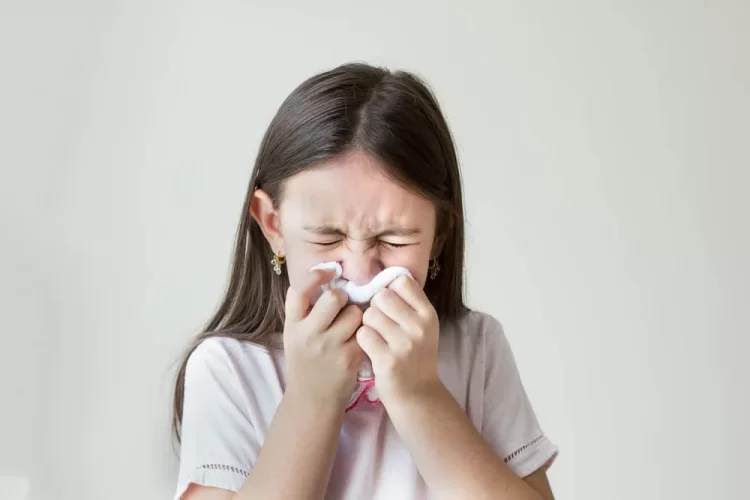Seasonal Allergies in Children: If your child has runny noses, itchy eyes, and tickly throats at certain times of the year, they are most likely suffering from seasonal allergies, sometimes known as hay fever. An allergy is your child’s body’s reaction to an alien protein. These proteins, or allergens, are frequently innocuous. If you are allergic to a protein, your immune system overreacts when it is present in your body.
Seasonal allergies appear at different times of the year. Seasonal allergy symptoms arise when airborne irritants or allergens enter the eyes, nose, or throat and create an allergic reaction.
SEASONAL ALLERGY SIGNS AND SYMPTOMS IN CHILDREN
Sneezing, runny or stuffy nose, itchy eyes and nose, sore throat, coughing, and dark circles under the eyes are all signs of seasonal allergies. There may be more to seasonal allergies than just a minor irritation. Children who have allergies may have the following effects:
- watery and itchy eyes
- itchy sinuses or throat
- headache
- shortness of breath
- coughing
SEASONAL ALLERGY CAUSES IN CHILDREN
Here are a few reasons that might make you think your child could have an allergy:
- Molds that are too tiny to be seen with the human eye can trouble your child.
- Pets with fur include cats, dogs, gerbils, rabbits, guinea pigs, and other species.
- Items produced, trimmed, or filled using animal fur include clothing and toys.
- Rubber gloves, toys, and balloons that are used in homes and schools; elastic in socks, underwear, and other apparel; airborne particles.
- Certain foods
SEASONAL ALLERGY TREATMENT IN CHILDREN
Seasonal allergies may be causing your child’s coughing and sneezing. You don’t have to put up with seasonal allergies as a parent. Consult your child’s doctor first, who may offer antihistamines or nasal corticosteroids to address your child’s allergy symptoms. Your doctor may also prescribe a pediatric allergy specialist. If allergy testing results in a positive result, the specialist may recommend immunotherapy (allergy injections) to reduce allergy symptoms and the need for daily medication.
Source:In
:







 Finance
Finance







